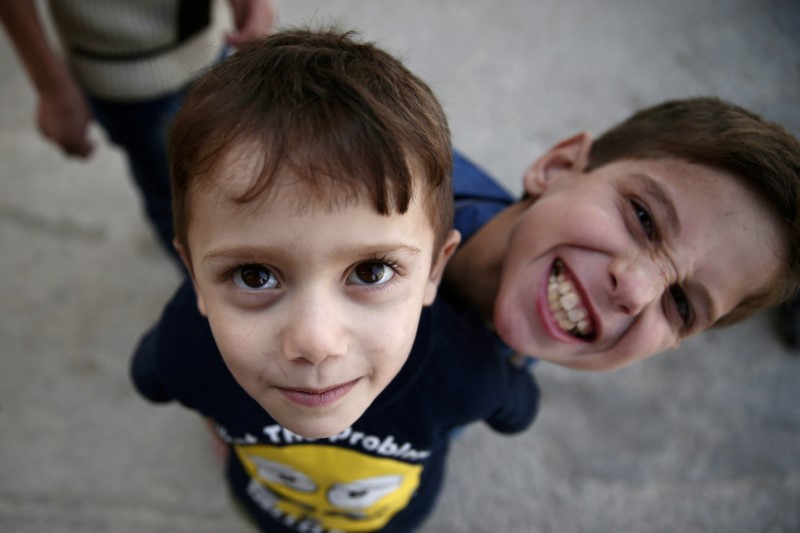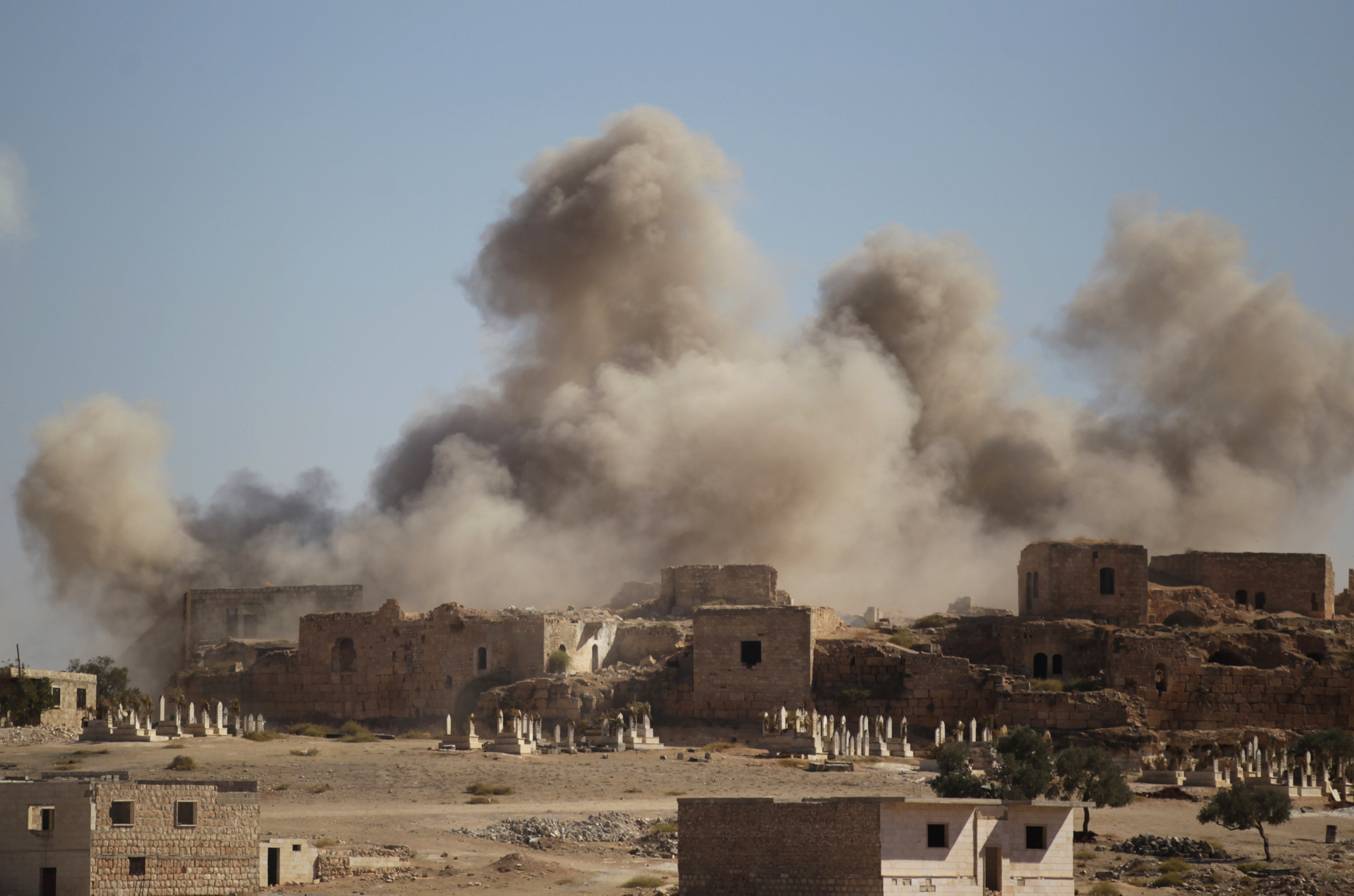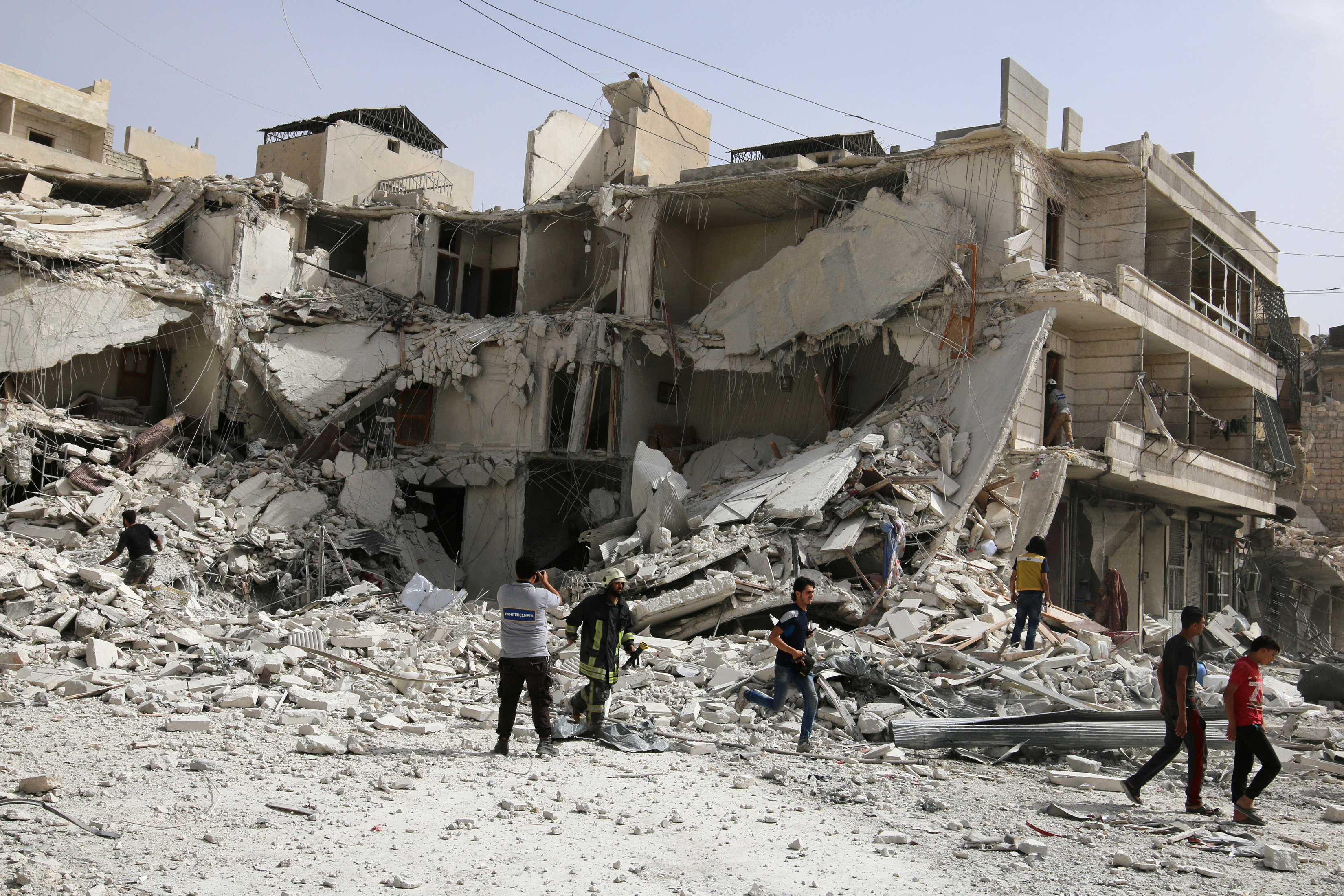
By Ellen Francis and Tom Perry
BEIRUT (Reuters) – Russian or Syrian warplanes knocked a major Aleppo hospital out of service on Wednesday, hospital workers said, and ground forces intensified an assault on the city’s besieged rebel sector, in a battle that has become a potentially decisive turning point in the civil war.
Shelling damaged at least another hospital and a bakery, killing six residents queuing up for bread under a siege that has trapped 250,000 people with food running out.
The World Health Organization said it had reports that both hospitals were now out of service.
The week-old assault has already killed hundreds of people, with bunker-busting bombs bringing down buildings on residents huddled inside. Only about 30 doctors are believed to be left inside the besieged zone, coping with hundreds of wounded a day.
“The warplane flew over us and directly started dropping its missiles … at around 4 a.m.,” Mohammad Abu Rajab, a radiologist at the M10 hospital, the largest trauma hospital in the city’s rebel-held sector, told Reuters.
“Rubble fell in on the patients in the intensive care unit.”
Medical workers at the M10 hospital said its oxygen and power generators were destroyed and patients were transferred to another hospital in the area. There were no initial reports of casualties in the hospital.
Photographs sent to Reuters by a hospital worker at the facility showed damaged storage tanks, a rubble strewn area, and the collapsed roof of what he said was a power facility.
The government of President Bashar al-Assad, backed by Russian air power, Iranian ground forces and Shi’ite militia fighters from Iran, Iraq and Lebanon, has launched a massive assault to crush the rebels’ last major urban stronghold.
Syria’s largest city before the war, Aleppo has been divided for years between government and rebel zones, and would be the biggest strategic prize of the war for Assad and his allies.
Taking full control of the city would restore near full government rule over the most important cities of western Syria, where nearly all of the population lived before the start of a conflict that has since made half of Syrians homeless, caused a refugee crisis and contributed to the rise of Islamic State.
UNPRECEDENTED BOMBING
The offensive began with unprecedented bombing last week, followed by a ground campaign this week, burying a ceasefire that had been the culmination of months of diplomacy between Washington and Moscow.
Washington says Moscow and Damascus are guilty of war crimes for targeting civilians, hospitals, rescue workers and aid deliveries, to break the will of residents and force them to surrender. Syria and Russia say they target only militants.
The Syrian army said a Nusra Front position had been destroyed in Aleppo’s old quarter, and other militant-held areas targeted in “concentrated air strikes” near the city.
Another hospital, M2, was damaged by bombardment in the al-Maadi district, where at least six people were killed while queuing for bread at a nearby bakery, according to the Syrian Observatory for Human Rights monitoring body and residents.
Food supplies are scarce in the besieged area, and those trapped inside often queue up before dawn for food.
The collapse of the peace process leaves U.S. policy on Syria in tatters and is a personal blow to Secretary of State John Kerry, who led talks with Moscow despite scepticism from other top officials in President Barack Obama’s administration. As the ceasefire crumbled last week, U.S. Republican Senator John McCain called Kerry “intrepid but deluded”.
BATTLEFIELD VICTORY
Washington says the offensive shows Assad and Russian President Vladimir Putin have abandoned negotiations in order to seek battlefield victory, turning their backs on an earlier international consensus that no side could win by force. Assad’s Iranian and Lebanese Hezbollah allies have said in recent days the war will be won in combat.
But the rebels remain a potent military force even as they have lost control of urban areas. The collapse of peace efforts ends a proposed scheme to separate Western-backed fighters from hardened jihadists.
Colonel Fares al-Bayoush, a rebel commander, told Reuters foreign states had given the insurgents a new type of Grad surface-to-surface rockets. The rockets, with a range of 22-40 km, had arrived in “excellent quantities” and will be used on battlefronts in Aleppo, Hama and the coastal region, he said.
A video posted on YouTube on Monday showed Free Syrian Army rebels firing Grad missiles at government positions near Aleppo. Bayoush said the weapons in the video were newly supplied.
MORE GROUND ATTACKS
A senior rebel official said pro-government forces were mobilizing in apparent preparation for more ground attacks in central areas of the city.
“There have been clashes in al-Suweiqa from 5 a.m. until now. The army advanced a little bit, and the guys are now repelling it, God willing,” a fighter in the rebel Levant Front group said in a voice recording sent to Reuters, referring to an area in the city center where there was also fighting on Tuesday.
Another rebel official said government forces were also attacking the insurgent-held Handarat refugee camp a few kilometers to the north of Aleppo.
“It doesn’t seem that their operation in the old city is the primary operation, it seems like a diversionary one so that the regime consumes the people on that front and advances in the camp,” the official, Zakaria Malahifij, head of the political office of the Fastaqim group, told Reuters from Turkey.
Pope Francis urged forces to stop bombing civilians in Aleppo, warning them on Wednesday they would face God’s judgment. Speaking in St. Peter’s Square, Francis called Aleppo “this already martyred city, where everybody is dying – children, old people, sick people, young people …
“I appeal to the consciences of those responsible for the bombings, who will one day will have to account to God.”
(Reporting by Tom Perry, Ellen Francis and Philip Pullella, writing by Peter Graff, editing by Peter Millership)











